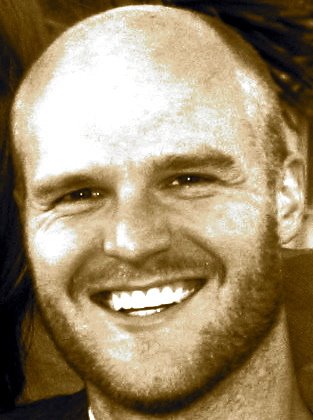Queen of the Sciences
 That is, theology. It used to be that theologians were sought after to answer questions of how’s and why’s and whozit’s and whatzit’s...but our society has bought into the notion that theology is not a real knowledge. Unlike mathematics and the hard sciences, theology is merely a belief system. However, this ‘two-sphere’ approach to life is fallacious. It misses the fact that one’s religious system pervades their view of the hard sciences. Francis Beckwith writes why theology and politics must convene to have a full-orbed view of the world. It is not imposition of beliefs. Rather, it is exposition of truth. Check this out: “While campaigning for the US presidency in 2004, Senator Kerry said that he believes that human life begins at conception, though he claimed that this belief should not be reflected in our laws. If the Senator had said something similar about another issue, such as spousal abuse, we would think his comments incoherent. So, let us imagine that Senator Kerry had said he believes that spousal abuse is wrong, but that this belief is his own private, personal one, and for that reason, it would be wrong for him to extend that belief through the law to others who may be members of religious traditions that encourage, or at least permit, spousal abuse. If Senator Kerry had made that claim, we would know immediately that he does not grasp what it means to say that an act is wrong. Why then do many of our fellow citizens not see the same incoherency when political leaders like Senator Kerry apply this reasoning to the question of abortion?” (italics original; Francis Beckwith, Notre Dame Journal of Law, Ethics & Public Policy, Vol 20, 462). And another: “Precisely because these jurists are theologically serious, they are unlikely to use the power of their office to engage in the sort of judicial usurpation of legislative, state, and executive powers that has marked the record of their liberal counterparts.” (Ibid., 467)  In other words, the legislation that is being passed down by more liberal “interpreters“ of the law are actually religious/philosophical beliefs about the world. What is ironic is that religion is supposed to be absent from a judge’s ruling - ”religious” being that which answers “What is man?” - but the philosophical presuppositions seek to answer that very question in the name of “fact.” After all, doesn’t the person who approves abortion have an answer handy when asked, “What is man?” Sure they do. Part of their answer is: “It isn’t an embryo.” In other words, the legislation that is being passed down by more liberal “interpreters“ of the law are actually religious/philosophical beliefs about the world. What is ironic is that religion is supposed to be absent from a judge’s ruling - ”religious” being that which answers “What is man?” - but the philosophical presuppositions seek to answer that very question in the name of “fact.” After all, doesn’t the person who approves abortion have an answer handy when asked, “What is man?” Sure they do. Part of their answer is: “It isn’t an embryo.”Of particular interest is page 469-470. This is a thought-demanding article and I am thankful to my friend, Weyland, who passed it along to me. Get the full article here. May the queen be re-throned; as God’s revelation is our only hope for understanding the twisted world in which we live. |



Comments on "Queen of the Sciences"
-
 Will and Olivia said ... (Wed Jun 28, 12:50:00 PM) :
Will and Olivia said ... (Wed Jun 28, 12:50:00 PM) :
-
 Matthew Wireman said ... (Wed Jun 28, 08:48:00 PM) :
Matthew Wireman said ... (Wed Jun 28, 08:48:00 PM) :
post a commentThere is a key difference between the example of abortion and the example of spousal abuse. Abortion, according to pro-choicers, has only to do with a woman’s own body and is not taking the life of another human being. Therefore, if the woman is not harming anyone else the government should not be telling her what to do. In the case of spousal abuse one person is harming another and the government has a right and responsibility to step in. So, for pro-choicers, it makes sense to legislate the latter and not the former.
John Kerry, however, is apparently a pro-lifer believing that life begins at conception and that abortion is the taking of another human being’s life. I remember his debate with Bush when he explained this and then went on to say that this was just his own personal conviction and that he would never impose it on someone else. What does this say about John Kerry’s convictions?
You might argue that George Bush believes homosexuality is wrong but he is not willing to make it illegal to be homosexual. What about George Bush’s conviction here? The difference is explained above. In this case no one is harming another person. George Bush may think it is wrong but he should let others do what they want and think is right because no one is getting hurt.
In John Kerry’s case, he believes that another person’s life is being taken but he is unwilling to do anything about it because it is just his own personal conviction about what is right and wrong. Apparently Kerry really “does not grasp what it means to say that an act is wrong.”
That's the key. The pro-choice group must hold on to the philosophical presupposition that the child in the womb is not a human life. But like Beckwith stated on pp 469-470 the judiciary system needs to be interpreters and imposers of what the Constitution intended (when abortion wasn't a figment of their imagination).